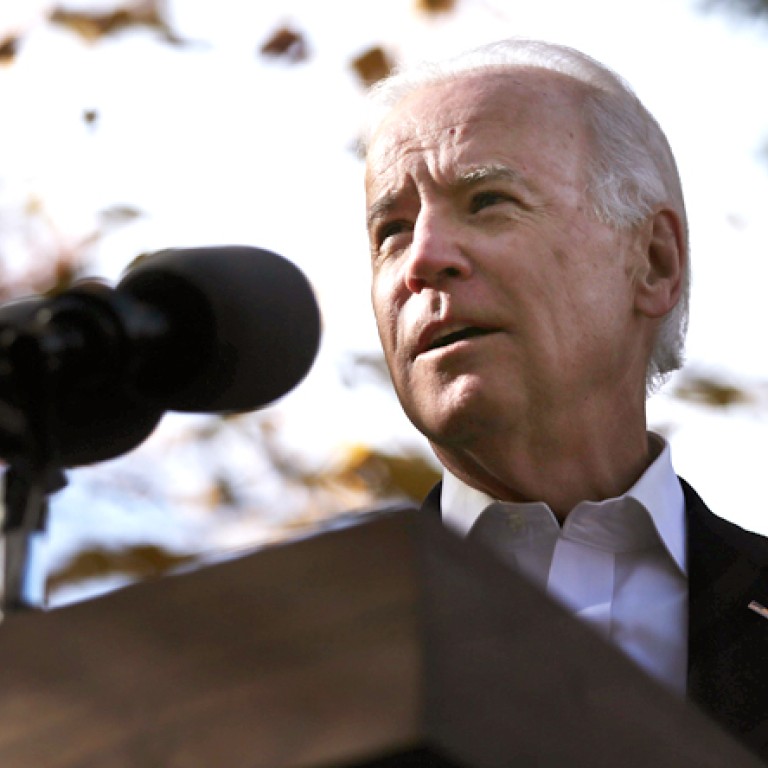
Biden to visit China, Japan, South Korea in new US push
Vice-president plans to consolidate ties and build relationships during December trip as US pivots towards Asia
US Vice-President Joe Biden will visit China, Japan and South Korea next month, the White House said on Monday, as it seeks to ease doubts about its commitment to Asia.
On the trip in the first week of December, Biden will be the highest-ranking US official to visit China since Beijing’s leadership transition.
President Barack Obama has pledged a larger US focus on Asia, seeing the fast-changing continent as vital to US interests.
But Obama cancelled a visit planned in October to four Asian nations, including two regional summits, after US lawmakers forced a shutdown of the government to thwart his health care reform.
Biden last visited northeast Asia in August 2011, when he spent hours with Xi Jinping, then the vice-president, in hopes of getting to understand the man likely to lead China for the following decade.
Xi formally took over as president in March at a time of feuding between the United States and China on issues ranging from copyright infringement to regional territorial disputes.
After he cancelled his trip to Asia, Obama insisted that his absence had “no lasting damage” but said that China did “not get as much of a pushback” at regional summits.
“I’m sure the Chinese don’t mind that I’m not there right now,” Obama said in Washington during the summits.
Obama spent a weekend with Xi in June at the Sunnylands resort in the California desert as the two leaders tried to build rapport.
Xi, who will likely lead China during an era in which it surpassed the United States as the largest global economy, has repeatedly urged Pacific powers to work out a “new type of great power relationship”.
US officials and experts have said that they generally find Xi to be friendly in tone but that they do not yet fully know his intentions toward the United States.
But US officials have surprised at how quickly Xi has consolidated power, potentially giving him the space to move decisively in foreign relations.
The US Congressional-Executive Commission on China, in a report last month, said that Beijing has expanded its crackdown on political dissent after initial hopeful signs of change from Xi.
Japan has been particularly nervous about China’s rise and has highlighted its alliance with the United States in an increasingly bitter row with Beijing over a set of disputed islands called the Diaoyus in China and the Senkakus in Japan.
The White House, in the statement, said Biden would also discuss with Japan the Trans-Pacific Partnership – a potentially sweeping US-led free-trade pact whose negotiations Tokyo recently entered.
South Korean President Park Geun-Hye has had warm relations with the United States since taking office this year.
The two countries have been seeking to co-ordinate their next steps in handling an often bellicose North Korea.
Biden, the former chairman of the Senate Foreign Relations Committee, has often spearheaded signature foreign policy drives for the White House.
